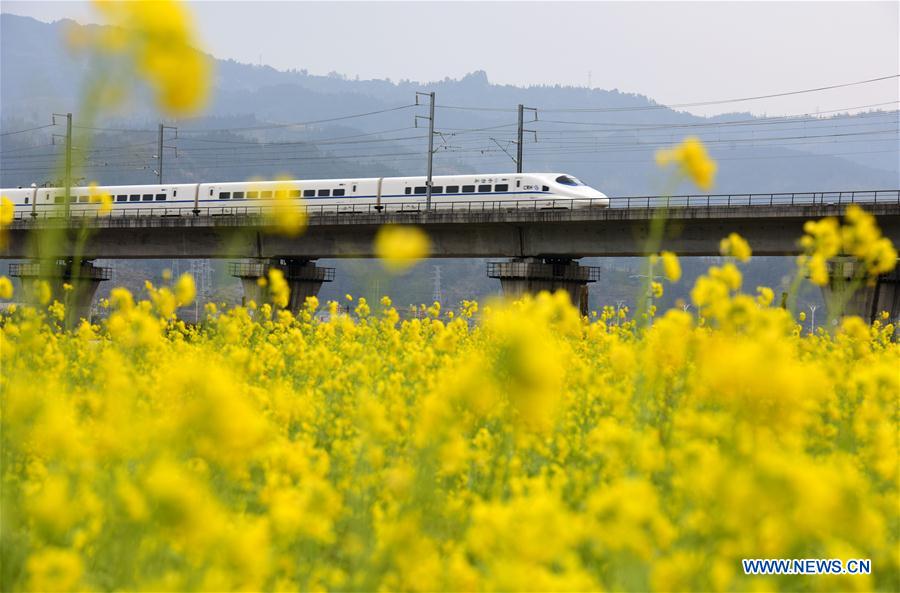Self-driving bullet trains? Arriving in 10 years
By Zhang Zhihao | China Daily | Updated: 2018-02-27 08:59

China's future high-speed trains might be self-driving, have a top speed around 600 kilometers per hour and an adjustable interior and entertainment system with high-speed internet, a senior engineer said on Monday.
Most of these new features will be completed within the next decade, said Ding Rongjun, an academician of the Chinese Academy of Engineering. He also is one of the key scientists behind Fuxing - the first bullet train fully developed in China.
Fuxing, which debuted last year on the line connecting Beijing and Shanghai, has an operating speed of 350 km/h - the world's fastest. It now serves a dozen major cities, from Chengdu, Sichuan province, to Shenzhen, Guangdong province, according to the China Railway Corporation.
Chinese scientists are developing a new model of Fuxing that can adapt to different track widths and still run consistently at 400 km/h, Ding said.
"These new trains can be used effectively in Russia or countries along the Belt and Road Initiative that may have different track widths."
The new model will enter service within five years, about the same period needed to create and launch the Fuxing, Ding said. In the next eight to 10 years, China will launch a 600 km/h bullet train that is suspended from a magnetic rail - nearly twice the speed of the one currently operating in Shanghai, he said.
Chinese engineers also are aiming to make future trains more comfortable, include adding more leg room in all carriages, stronger internet signals and some high-class seats that might involve adjustable interior and entertainment systems, such as windows that can change color or serve as movie screens, Ding said.
Artificial intelligence will be included in future trains, using gadgets such as scanners that automatically check and deduct fees when passengers board and exit trains without having to deal with tickets, he said.
Trains also will have advanced self-driving systems that can predict abnormal conditions and automatically slow in case of emergencies, he added. These systems will be finished within three years.
"All of these new features will require new designs, new wiring and new software to operate safely and effectively, which can be very challenging," he said.
But Ding said he is optimistic because China has "world-leading bullet train building experience", and a "super team" of more than 1,500 highly capable scientists working in the field.
Now, China's high-speed railway network extended along 25,000 kilometers of track, which accounts for about 60 percent of the world's total, according to the corporation.
























